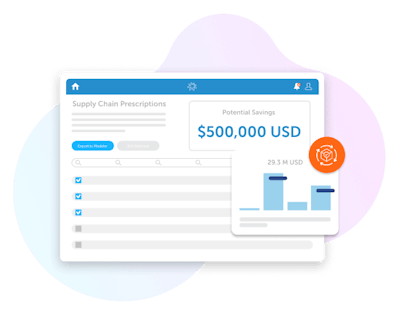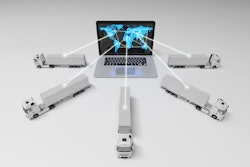
Emerging technologies are reshaping the future of supply chain. It’s these disruptive technologies that are altering the way organizations do business. They’re creating alternative means of connecting data, providing visibility, enforcing safety and more.
Food Logistics talks exclusively with Nari Viswanathan, senior director supply chain strategy, Coupa, about the importance of digitization in a world of continuous supply chain disruptions.
CLICK HERE to read the article in full.
Food Logistics: Emerging technologies are on the rise, everything from AI and IoT to cloud-based, digital transformation and future-proofing the supply chain. What do think is attributing to the growth in adoption of emerging technologies?
Nari Viswanathan: The past few years have put a magnifying glass on the supply chain industry as consumers have increasingly felt the impact of disruptions on critical goods such as food, baby formula, and medicine. All too often business leaders have relied on out-of-date supply chain strategies and legacy technologies, leaving them blind to the magnitude of risk hiding in their third-party relationships. These risks can look like single-source dependencies, cybersecurity vulnerabilities, reputational risks, and geopolitical disruption, all of which can impact a business's bottom line. So, by necessity, business leaders are now addressing these issues head-on with emerging technologies and data-driven workflows that provide better visibility into the business practices of their supply chain partners. Digitization has been critical for gaining these valuable insights. Through automation, digital tools, and new technologies like AI and digital twins, businesses can rethink how and where they produce and source from and better predict impactful events like droughts and flooding. While this does not eliminate risk altogether, improved scenario planning can reduce potential delays, lost revenues, expedited costs, and constant fire drills, which helps them better future-proof their supply chain.
Food Logistics: What kinds of emerging technologies has your company introduced within the last 12 months? Anything on the horizon that will be introduced soon?
Viswanathan: Coupa has been leveraging AI for more than a decade and recently announced additional AI-driven automations that will support businesses by increasing payment automation, optimizing collaborative workflow processes, and creating deeper optimization capabilities. These new offerings help companies make smarter, more strategic decisions to improve business decisions and collaboration across the supply chain.
This summer, Coupa will launch Forecast Collaboration, new to our Supply Chain Collaboration suite that streamlines communication between buyers and suppliers to better match supply and demand. Forecast Collaboration enables buyers to proactively plan future material needs to mitigate risks and ensure continuous supply.
Food Logistics: What advice do you have for those companies who haven’t implemented any form of emerging tech whatsoever or are just starting the journey? Where/how should they start?
Viswanathan: It’s all about identifying the right technology partner who can provide deeper insights into potential growth areas; blind adoption of emerging technologies alone is not enough to ensure success. Instead, business leaders should work with technology partners to create audits that identify existing breakdowns in workflow, define objectives for how the technology will be utilized, train employees, and make sure any technology investments will meet compliance and ethical standards. These partners can also provide a network of industry peers that allows companies to share insights and best practices, which helps accelerate the learning curve associated with emerging technology.
Food Logistics: How can companies decipher which kinds of emerging technologies are best for their supply chain?
Viswanathan: Determining the most effective and impactful emerging technologies to improve a company's supply chain operations first requires a comprehensive look at pain points, inefficiencies, and potential areas of improvement. Companies should not only ask themselves what they need to improve on but also get feedback from suppliers on where they think a breakdown is happening. Some of the most impactful technologies for supply chains are business spend management software for improved transactions and supplier management, supply chain network design for managing constantly evolving supply-demand networks, IoT for real-time tracking and monitoring, and AI for predictive analytics. Ultimately, companies should prioritize technologies that align with their strategic objectives, offer tangible benefits, and demonstrate a clear return on investment for their supply chain operations.
Food Logistics: What are some things not addressed above that may be pertinent to our cold food chain readers?
Viswanathan: A specific pain point cold food chain businesses deal with is effective inventory management due to the often, pre-determined shelf life of many foods. Supply chain planners must be judicious in how many units they have in stock, lest they risk products spoiling before being sold. As a result, stockpiling and “just in case” inventory systems aren’t always an option. This is where AI and digital twin technology are going to be important, especially as we continue to see global warming have an impact on the food supply chain, something we’ve already witnessed in the dairy industry with a butter shortage last year. These technologies offer digital replicas of the physical supply chain that can help test scenarios and prevent disruption. While these technologies can’t prevent risk, they can allow businesses to plan around disruption and create solutions faster.
CLICK HERE to read the article in full.




















